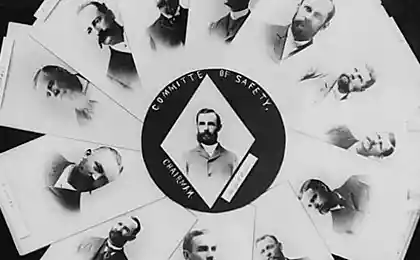524
Why we are better than working at a time when all terms are about to expire?
And if this is at all? 
Best of all you work at the last minute before the deadline? Well, maybe not you personally, but from friends anyone has ever heard about it. So: it is self-deception. And if you truly believe that this is the best work and get in the final minutes before the end of timing, you are cheating yourself and the consequences can be very negative.
Professor Carleton University psychologist Tim Pichilemu reports that no study that would confirm the hypothesis of improved efficiency and quality of work in the last minutes before the surrender. But studies that prove otherwise, there.

In times of stress the brain functions less efficiently: it experiences additional cognitive load, which not only can interfere with your ability to learn and acquire new knowledge, but also to turn random ideas into something truly meaningful and useful. Under the pressure of time people often miss something important or doing everything wrong or bad. If a person has time to spare, the stress usually does not happen, so it does a better job.
Equally important is the motivation: the higher and closer the reward, the better the person will do the job. If, before the award is still far away, then the person will refer to his duties less responsibly. This is often referred to as bias current or hyperbolic discounting.
Bias of this is closely related to one human feature - think of the future "in the third person." We are thinking about their own future, as a future stranger. This means that when we put the work for tomorrow, we (only in their own perception, of course) if delegate it to a stranger.
The tendency to postpone the case until later - a symptom of natural, deep-rooted mental processes. Putting aside, we get a momentary pleasure as delicious food, sex and the like.
via factroom.ru

Best of all you work at the last minute before the deadline? Well, maybe not you personally, but from friends anyone has ever heard about it. So: it is self-deception. And if you truly believe that this is the best work and get in the final minutes before the end of timing, you are cheating yourself and the consequences can be very negative.
Professor Carleton University psychologist Tim Pichilemu reports that no study that would confirm the hypothesis of improved efficiency and quality of work in the last minutes before the surrender. But studies that prove otherwise, there.

In times of stress the brain functions less efficiently: it experiences additional cognitive load, which not only can interfere with your ability to learn and acquire new knowledge, but also to turn random ideas into something truly meaningful and useful. Under the pressure of time people often miss something important or doing everything wrong or bad. If a person has time to spare, the stress usually does not happen, so it does a better job.
Equally important is the motivation: the higher and closer the reward, the better the person will do the job. If, before the award is still far away, then the person will refer to his duties less responsibly. This is often referred to as bias current or hyperbolic discounting.
Bias of this is closely related to one human feature - think of the future "in the third person." We are thinking about their own future, as a future stranger. This means that when we put the work for tomorrow, we (only in their own perception, of course) if delegate it to a stranger.
The tendency to postpone the case until later - a symptom of natural, deep-rooted mental processes. Putting aside, we get a momentary pleasure as delicious food, sex and the like.
via factroom.ru
75-year study of emotional health led to the conclusion that happiness - love
Several major reasons to get outside























